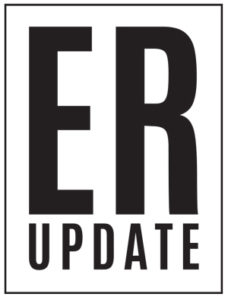The 2020-2021 Annual Wage Review (‘AWR’) has been underway for several months. The outcome of the Fair Work Commission (‘FWC’) Expert Panel’s review into minimum wages is expected to be announced in June. It’s important to note that the FWC is required to conduct and complete AWR in each financial year in accordance with section 285 of the Fair Work Act 2009 (‘FW Act’).
In determining the amount of a potential wage increase, the Expert Panel must undertake consultation and commission research (on matters including, for example, the prevailing and predicted economic climate), to be contemplated alongside the submissions of stakeholders such as state governments and employer/ employee interest groups. The FWC must also have regard for sections 284 and 134 of the FW Act, which set objectives for providing a safety net of minimum wages and other employment terms and conditions.
As members would be aware, minimum wages payable under the Hospitality Industry (General) Award 2020 (‘the HIGA’) increased by 1.75% on 1 February this year. That occurred as the result of last year’s decision, which staggered the operative date of increases awarded in the 2019-2020 AWR into 3 groups; the HIGA was included in the last of these (group 3). In the 2019-2020 AWR, modern awards were assigned to one of these three groups based on the extent to which industries or occupations had been detrimentally impacted by the COVID-19 pandemic, and the increase staggered to have effect on a different date for each of the groups .
Increases to minimum rates of pay arising from the AWR process ordinarily take effect from the start of the first full pay period on or after 1 July. In the 2019-2020 AWR, ‘exceptional circumstances’ resulted in the staggered approach.
As part of the 2020-2021 AWR, the FWC invited parties to make submissions in relation to the of timing of any increase; several employer groups took this opportunity to assert that a staggered approach is once again appropriate.
While any increase arising from the 2020-2021 AWR process may be subject to a staggered approach, because that was the decision last year does not mean the same will follow this year; an increase to minimum wages in the HIGA could take effect from the first full pay period on or after 1 July 2021.
The parties’ submissions have commonly cited the following issues as central to informing the outcome of the current and ongoing AWR:
- The short amount of time that has elapsed since the last increase took effect in some modern awards;
- The uneven distribution of economic loss and rate of recovery across different industries, occupations and geographical locations;
- The 0.5% increase to the superannuation guarantee, legislated to have effect from 1 July 2021;
- Increased rates of disposable income arising from income tax changes introduced in the October 2020 Federal Budget;
- Ongoing shortages of available skilled migrant labour;
- Impact that the winding back of government support measures such as the JobKeeper Payment Scheme, commercial and residential rental and insolvency protections will ultimately have on businesses and individuals, and;
- The flow through effect that issues with the vaccine roll-out could have on business and consumer confidence.
The views of individual parties’ (as submitted to date) are summarised below:
| WHO? | WHAT ARE THEY ASKING FOR? |
| Australian Council of Trade Unions (‘ACTU’) | 3.5% increase with no deferral of operative date |
| Australian Chamber of Commerce and Industry (‘ACCI’) | No opposition to an increase equivalent to the rate of inflation measured to the most recent March quarter (1.1%), to take effect no earlier than 12 months after the last increase. If the Expert Panel is minded to re-align the operative date across industries, it should be deferred until 1 January, 2022. |
| Queensland State Government | Supports the maintenance of rates that are no less than CPI. |
| Australian Retailers Association (‘ARA’) | Due to lack of available economic data, recommend deferral of AWR outcome until 30 November, 2021. |
| Australian Industry (‘AI’) Group | Proposed 1.1% increase with operative dates of:
· 1 July for National Minimum Wage (‘NMW’) and former ‘group 1’ modern awards; · 1 September, 2021 for former ‘group 2’ modern awards; · 1 January, 2022 for former ‘group 3’ modern awards. |
| Restaurant and Caterers’ Association | No increase to rates payable under former ‘group 3’ modern awards; if an increase is granted, operative date to be delayed until 1 February, 2022 for former ‘group 3’ modern awards. |
Members will be kept up to date on developments in relation to the 2020-2021 AWR as they arise through publications such as QHA Update and the Employment Relations (‘ER’) Bulletin. It is important to note that the QHA doesn’t find out what the increase will be until the FWC releases the AWR Decision.
QHA members wishing to subscribe to the ER Bulletin or discuss a specific ER matter are encouraged to contact the ER Department for a confidential discussion by calling (07) 3221 6999 or emailing er@qha.org.au.

